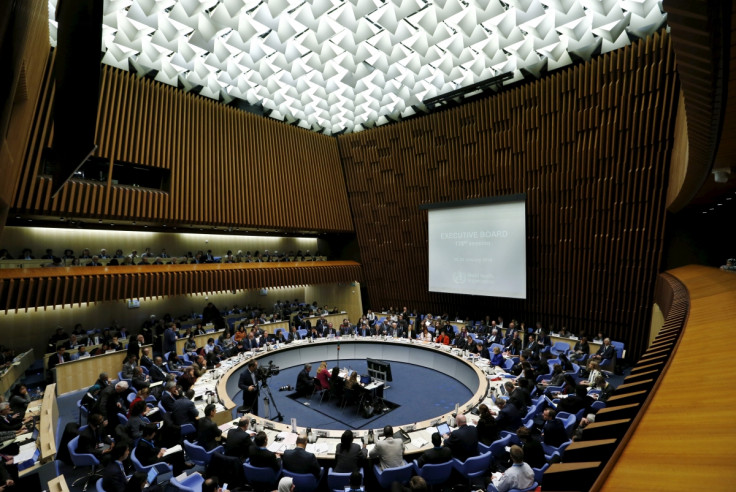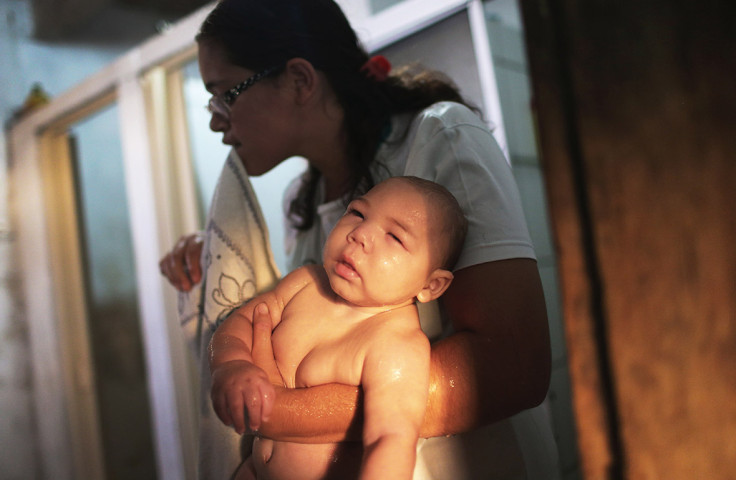Zika virus: WHO must act urgently after being 'caught off guard' by emerging pandemic

The World Health Organisation needs to convene "urgently" about the emerging spread of the Zika virus, say two professors from Georgetown University. They say that the WHO were to blame for thousands of unnecessary Ebola virus deaths due to their inability to act quickly, and the experts fear a similar situation may arise with the Zika pandemic.
The professors, Daniel Lucey and Lawrence Gostin from Georgetown University, Washington, DC, say in the journal JAMA that a meeting of the International Health Regulations' Emergency Committee needs to be arranged immediately as a response to the Zika virus outbreak. Both researchers are part of the O'Neill Institute for National and Global Health Law, a panel of internationally-recognised policymakers for health issues.
"An Emergency Committee should be convened urgently to advise the Director-General about the conditions necessary to declare a Public Health Emergency of International Concern (PHEIC)," the academics write.
"While Brazil, [the Pan American Health Organization], and the Centers for Disease Control and Prevention have acted rapidly, WHO headquarters has thus far not been sufficiently proactive given potentially serious ramifications."

Lucey and Gostin also advised the WHO that mosquitoes need to be more closely controlled. They explain that the use of insecticide and removing their breeding grounds will effectively reduce the number of Zika cases being reported. They also said that the WHO should increase their efforts to find a vaccine for the virus.
In May 2015, the WHO conceded that it was slow in responding to the Ebola outbreak in West Africa, and the Georgetown professors are anxious that they may not have learned from their previous mistakes.
The virus is spread by mosquitoes of the Aedes genus. This is the same vector that is responsible for dengue fever, and can be found across a broad range of continents, including South (and Central) America, Africa, Asia and Oceania.
The virus was first described in 1947 in the Ugandan forest of Zika. Ten years later it appeared in Nigeria, and the first outbreak of the virus occurred on the Macronesia island of Yap in 2007, with around 180 confirmed cases.
That brief outbreak was minor compared to the recent events in Brazil though, and it has become the worst affected country, with nearly 4,000 cases reported since October 2015. Brazilian officials have since suggested that pregnant women should avoid travelling to the country – a sentiment also expressed by Colombia, El Salvador and Jamaica.

The virus has since spread to North America and Europe. The US reported their first case of Zika in Texas on January 14, and it has now also been found in Europe, as Denmark reports its first case. Three Britons have also been confirmed to be infected with the virus, after travelling in South America.
Zika is not extremely serious for adults, as symptoms expressed are similar to the flu. These symptoms last for no more than seven days, and include a headache, joint pain, rash and eye pain (which can lead to conjunctivitis).
Pregnant women are most at risk from the Zika virus. There is a chance that the virus can infect the fetus which subsequently leads to incomplete brain development. There is a higher risk for pregnant women in their first and second trimester, and infection can result in microcephaly, a birth defect which results in the head being smaller than average.
Microcephaly can also cause seizures, difficulty hearing and intellectual disability. The virus can also be a precursor to Guillain-Barré syndrome, a condition that results in the nervous system being attacked by the immune system.

"The critical lesson learned from the WHO's handling of the Ebola crises was the need for early and decisive action," says Gostin. "Yet WHO, and even advanced countries like the United States, were caught off guard [by the Zika outbreak]. It would be unconscionable if a lack of preparedness resulted in hundreds of unnecessary cases of Zika and potential congenital abnormalities in newborns."
© Copyright IBTimes 2025. All rights reserved.






















